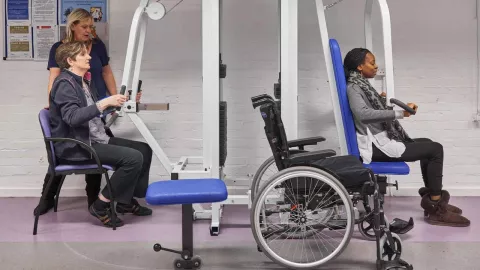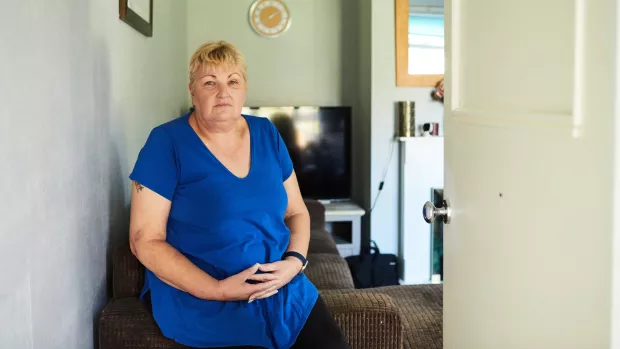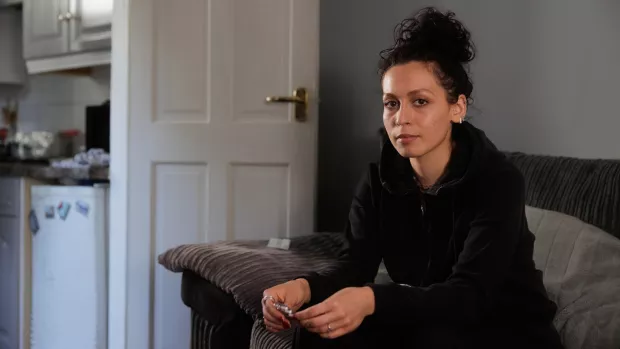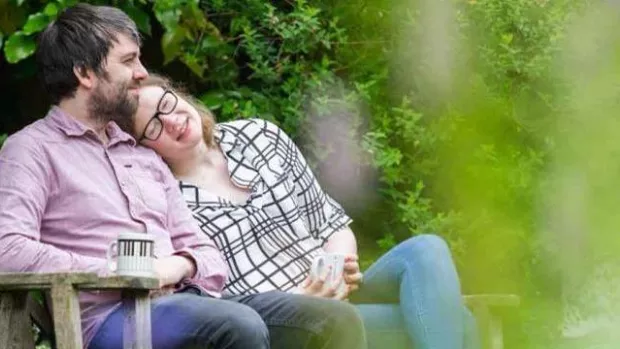
Putting neurological rehabilitation on the political agenda
Back in October 2020 we shone a light on the toll COVID-19 has taken on essential rehabilitation services for people with MS, with the launch of our Too Much To Lose campaign.
Together, our community wrote to almost every local health decision-maker in the UK to ask them to take action.
Last month, we took these calls to Parliament by teaming up with other neurological charities for a virtual roundtable meeting with MPs and Peers to discuss improvements to neuro-rehabilitation services.
The joint meeting of the All Party Parliamentary Groups (APPGs) on MS, Acquired Brain Injury, Epilepsy, Motor Neurone Disease and Parkinson’s discussed the impact of COVID-19 on vital services, and actions that could improve the situation.
Rebecca Robinson, who lives with MS and volunteers as a member on our APPG, said: “From my experience, having a rehab specialist has been really beneficial. I have had to postpone support since January and I am unsure when this will start again.
“It was great to see people in need of neuro-rehabilitation like me given the opportunity to share what life has been like during lockdown, and politicians agree to work on our behalf for improvements to rehabilitation.”
Building cross party support to #GetRehabRight
APPGs are groups of MPs and Peers from all parties who work together to put issues on the political agenda in Westminster and beyond. 8 MPs and 4 peers joined us for the first ever joint meeting of neurological APPGs.
Parliamentarians heard first hand from a variety of experts - including clinicians, physiotherapists and people with lived experience – who described what has been happening across the UK.
Georgina Carr from the Neurological Alliance set the scene explaining the impact COVID-19 has had on neurological rehabilitation services, discussing the findings of our recent report which used feedback from people with MS.
Professor Adrian Williams from University Hospitals Birmingham NHS Foundation Trust explained why these services are vital for the health and wellbeing of people with neurological conditions.
Adine Adonis from the Association of Chartered Physiotherapists in Neurology outlined how the delivery of rehabilitation services has changed during the pandemic, the impact on patients and the impact of long-Covid on these services.
The meeting then heard from people with lived experience of acquired brain injury, Parkinson’s and motor neurone disease.
Working together to help people with neurological conditions
Chris Bryant MP, Chair of the APPG on Acquired Brain Injury said: “I'm delighted to be involved in an event that's bringing together all-party parliamentary groups to work on an issue we know affects many people with neurological conditions.
“By working together, I hope we are able to persuade the government to make the necessary changes to our health services to make a meaningful difference to people's lives. We must have a national strategy and clear national leadership for rehabilitation.”
Plans to make a difference to rehabilitation services
The session ended with a discussion about what could be done to improve rehabilitation and other services. Ideas and actions included:
- developing clear national leadership for neurology and rehabilitation services within the Department for Health and Social Care and the NHS in each nation
- ensuring that funded national strategies to improve rehabilitation are developed in partnership with clinicians and patients, with progress on these strategies reviewed
- evaluating the effectiveness of the digital delivery of rehabilitation services during the pandemic. This will help identify best practice and innovation.
More work needs to be done
Simon Hoare MP, Chair of the APPG for MS said: “It is so important for politicians to hear about the reality facing people with neurological conditions who have been missing out on essential services. It is not easy listening, but shows that work needs to be done to change things for the better.
“It’s clearly a false economy not to provide neuro-rehabilitation services. I now look forward to working with my colleagues across Parliament to help make sure these voices are heard, and action is taken to make that necessary change a reality.”
Rounding off the meeting, Simon and Chris agreed to write to the Health Secretary Matt Hancock and the Chief Executive of NHS England Sir Simon Stevens about what was discussed. Meanwhile, parliamentarians who joined committed to working together in the New Year in order to #GetRehabRight.
Join our campaigns community to stay up to date with our campaigning across the UK.




